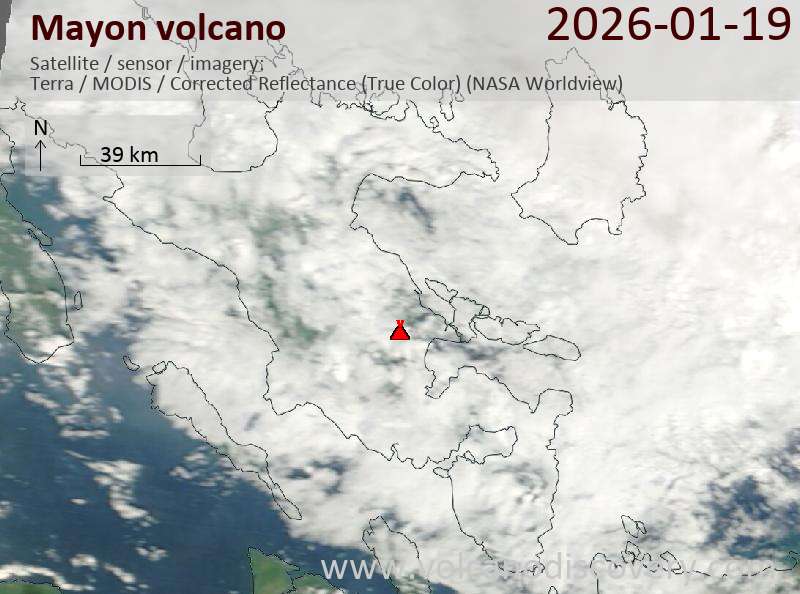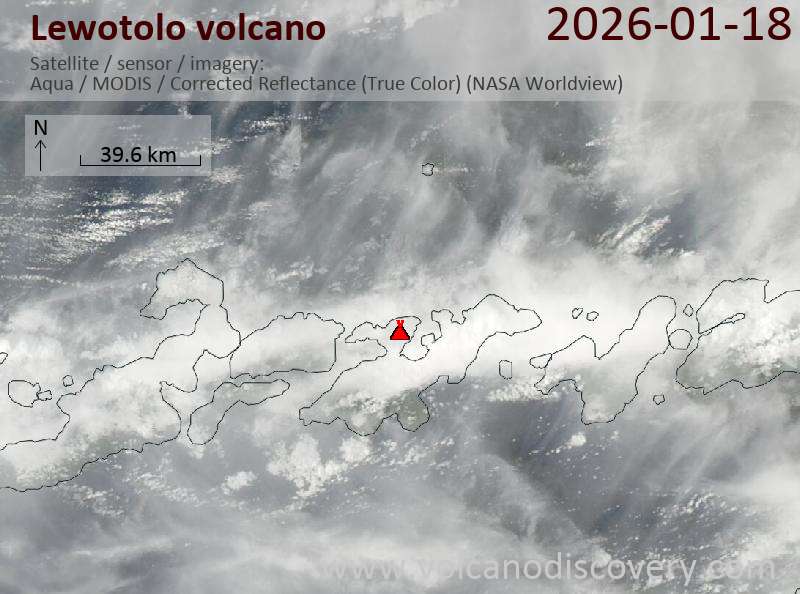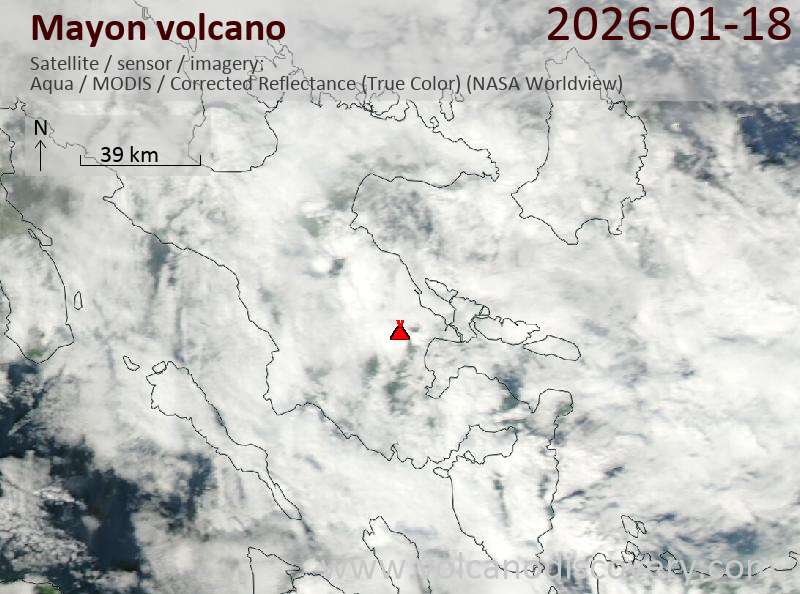
Volcanic Ash Advisory Center Tokyo (VAAC) issued the following report:
FVFE01 at 02:00 UTC, 19/01/26 from RJTD
VA ADVISORY
DTG: 20260119/0200Z
VAAC: TOKYO
VOLCANO: MAYON 273030
PSN: N1315 E12341
AREA: PHILIPPINES
SOURCE ELEV: 2462M AMSL
ADVISORY NR: 2026/54
INFO SOURCE: HIMAWARI-9 PHIVOLCS
ERUPTION DETAILS: ERUPTION AT 20260119/0140Z VA CLD UNKNOWN REPORTED
OBS VA DTG: 19/0140Z
OBS VA CLD: VA NOT IDENTIFIABLE FM SATELLITE DATA WIND FL180 330/11KT
FCST VA CLD +6 HR: NOT AVBL
FCST VA CLD +12 HR: NOT AVBL
FCST VA CLD +18 HR: NOT AVBL
RMK: WE WILL ISSUE FURTHER ADVISORY IF VA IS DETECTED IN SATELLITE
IMAGERY.
NXT ADVISORY: NO FURTHER ADVISORIES=


